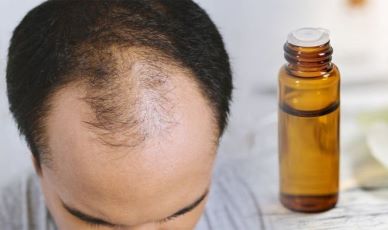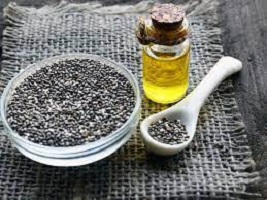Tea Tree Oil for Hair Growth, Benefits, And How to Use
Tea Tree Oil for Hair Growth, Benefits, And How to Use

One of the most effective essential oils for cosmetic purposes is tea tree oil, which also has several medical benefits.
More specifically, your scalp and hair strands will greatly benefit from using tea tree oil for your hair.
The oil is one of the greatest hair oils for a wide variety of hair kinds and textures, in addition to making your home smell nicer and helping with acne.
Due to its antibacterial and antifungal properties, tea tree oil can improve the general health of the hair and scalp while also helping to relieve several scalp issues.
The advantages of tea tree oil for hair, whether it promotes hair development, application guidelines, possible adverse effects, and other information are covered in this article.
Pictures of ‘tea tree oil before and after’ will be added to this post too
Tea Tree Oil for Hair Groth: What is tea tree oil?
A potent extract that supports the health of the scalp and hair is tea tree oil. Where does it originate, though?
Terpinen-4-ol is a molecule that is one of the key constituents in the oil and has potent antibacterial and anti-inflammatory properties.
Because of this, tea tree oil is a skincare superhero for your scalp’s skin as well.
For thousands of years, people have utilized this multipurpose oil, which comes from a tree endemic to Australia’s northeast coast, as a resource.
An overview of tea tree oil’s background and origin
The tea tree plant, scientifically known as Melaleuca alternifolia, is native to Australia and is the source of the aromatic oil known as tea tree oil.
Aboriginal people have long used its leaves to treat skin sores. The oil was obtained by crushing the leaves.
This practice is still prevalent today, as is evident from the widespread use of tea tree oil in cosmetics and hair care products.
The method of extraction
After a thorough steam distillation procedure, tea tree oil is produced.
Steam treatment is applied to freshly harvested leaves and twigs of Melaleuca alternifolia. The oil-carrying cells burst open due to the steam.
After that, the oil and water are collected and separated. All that’s left is unadulterated tea tree oil, ready to use!
Tea tree oil benefits for hair
One essential oil that is very beneficial to the skin and hair is tea tree oil.
One of the most advantageous oils that you should incorporate into your regular hair and skincare routine is tea tree oil, which has inherent antibacterial and anti-inflammatory properties.
A handful of the numerous advantages of tea tree oil for hair are as follows:
Thicker and longer hair: Tea tree oil is something you might want to incorporate into your hair care regimen if you’re growing out your hair.
Tea tree oil nourishes your roots and unclogs hair follicles.
Prevents head lice: It’s said that tea tree oil can assist in maintaining a clean, healthy scalp and aid in the removal of lice.
It enhances the general health of the scalp. Tea tree oil has strong, healthy hair follicles and a clean, healthy scalp thanks to its natural antifungal and antibacterial qualities.
Might promote hair growth: Tea tree oil might be a useful addition to your hair care regimen if you’re searching for an herbal remedy to encourage hair growth.
By enhancing the general health of the scalp, it can provide a favorable environment for the growth of hair, even if it doesn’t directly promote new hair growth.
Tea tree oil soothes irritability. Tea tree oil is a fantastic supplement for people who have unpleasant irritation, inflammation, or itching on their scalp.
When used correctly, the essential oil’s anti-inflammatory qualities help soothe an irritated scalp.
Other benefits of tea tree oil for hair include:
- Revitalizes the scalp and hair
- Aids in controlling the production of oil
- Aids in the fight against dandruff
- It also prevents hair loss
When to use tea tree oil on hair for healthy thick hair
Tea tree oil is beneficial to a lot of people who deal with various hair issues. Those who suffer from dandruff will discover that tea tree oil helps!
Tea tree oil is excellent for cleaning, so it stands to reason that it would promote hair growth as well.
It makes room for healthy hair to grow by clearing up hair follicles and feeding your roots.
You will notice a faint tingling sensation as the tea tree oil starts to do its job.
Applying the oil thoroughly will yield the most advantages!
Consider tea tree oil as an additional option if you’ve dealt with hair thinning.
Those who are interested in alternative medicine often turn to tea tree oil because of its antimicrobial qualities.
Applying tea tree oil to the scalp helps combat any substances that lead to dryness or flaking of the skin.
When it comes to keeping your hair healthy in general, tea tree oil is effective.

How to dilute tea tree oil for hair
When you use a shampoo that contains 5% tea tree oil, you can alleviate dandruff naturally.
Make a 3-minute lather once a day for four weeks.
If you want your hair to stay healthy, dilute your tea tree oil using a mixture of one part tea tree oil to ten parts almond oil or any comparable oil.
For optimal effects, use the combo daily.
How to use tea tree oil for hair
The extraordinary cleaning properties of tea tree oil are well recognized. Is tea tree shampoo beneficial to hair health? Indeed.
Tea tree oil for hair growth and thickness: Prevent the development of chemicals and dead skin by running tiny quantities of diluted tea tree seed oil down the hair shaft.
By keeping your hair hydrated and healthy, you can encourage regular hair growth and stop it from breaking out.
Tea tree oil for hair shampoo: Tea tree oil works well as a hair mask when diluted with other nutritious hair oils.
If you apply a tea tree oil mask to your hair for ten minutes or more, its nourishing and cleaning qualities provide plenty of time to start working.
Just remember to completely wash the hair mask off afterward!
First, we’ll examine some of its potential applications:
If your scalp is feeling dry, try massaging a mixture of tea tree oil and carrier oil into your hair and scalp for ten to fifteen minutes.
After that, give your hair a typical wash. Repeat this procedure every day for optimal outcomes.
To address the problem of dandruff, apply tea tree oil to your hair by combining 10–15 drops with each ounce of shampoo and massaging it into your hair.
After three to five minutes, give it a good rinse in addition to soothing the scalp and preventing flakiness, tea tree oil functions as a natural conditioner.
Tea tree oil for hair growth: Applying a thin layer of diluted tea tree oil down the hair shaft can aid in preventing the accumulation of pollutants and dead skin.
By keeping your hair hydrated and healthy, you can encourage regular hair growth and stop it from breaking out.
How to use tea tree oil for hair growth
Apply and massage this oil combination over your scalp to help your hair follicles.
You can also choose to get a hot oil treatment if you’d like.
Store it for the entire night, or leave it on for thirty to forty minutes before washing your hair.
Tea tree oil for hair lice: A mixture of seven or eight drops of tea tree oil and one tablespoon of any vegetable oil may help repel lice.
Let it sit in the hair overnight. A shower cap will let the product sink into your hair more deeply.
The next morning, use a fine-toothed comb to detangle your hair before rinsing it out.
If you want to condition your hair every day, you should know that tea tree oil spray works just as well as a leave-in conditioner.
A little boiling water will do it for you. Add a few droplets of tea tree oil to the mixture.
If you have chamomile tea, you may also add it to this spray.
Just be sure that the amount of tea tree oil in your spray mixture is about five percent when you prepare it.
To add some natural conditioning to your hair, store this combination in a spray bottle and apply it as needed.
As a hair mask to be used overnight: An ideal overnight hair mask ingredient would be tea tree oil, which has several beneficial uses, including promoting a healthy scalp, stimulating hair development, warding off infections, and increasing hair shine.
Methods for applying a tea tree oil hair mask before bed
Before you go to bed, add a few drops of it to your coconut oil and massage the mixture into your scalp.
When applied, it can lessen frizz, tangles, and knots in your hair by absorbing moisture into the shafts.
Tea tree oil for hair growth before and after
Using a carrier oil with tea tree oil
Let’s see how you may get strong, healthy hair by combining tea tree oil with the right carrier oil!
- A blend of olive oil and tea tree oil, oleiferain, which is found in olive oil, is known to support healthy hair.
Two tablespoons of olive oil can be combined with around ten drops of tea tree oil.
Put it in boiling water to gently reheat it. Apply it to your hair and scalp after that.
- A blend of jojoba and tea tree oils: Jojoba oil has characteristics with the natural oil found on scalps.
This encourages hair growth and helps control the production of oil.
Ten drops of tea tree oil and two tablespoons of jojoba oil combined will provide you with a mixture that improves the health of your hair and scalp.
Blends of tea tree oil for hair growth
Combining tea tree oil with other essential oils, such as lavender and rosemary, can help promote hair development.
Additionally, these oils support healthy hair. Let’s look at a few tried and true hair growth recipes.
- Tea tree oil and lavender oil: Lavender oil is known to promote hair growth.
To improve the health of your scalp and the condition of your hair, combine two to three drops of lavender oil, ten drops of tea tree oil, and a carrier oil of your choice.
- Tea tree oil plus rosemary oil: In addition to thickening hair, rosemary oil softens, manages, and stimulates hair development.
Combine two to three drops of rosemary oil, tea tree oil, and your preferred carrier oil to make a concoction that promotes hair development and strength.
By following these instructions, you may add tea tree oil to your hair care regimen and enhance the overall health, fullness, and texture of your hair.
Risks and warnings
Despite the advantages of tea tree oil, certain safety measures must be taken.
- Don’t, for instance, swallow the oil.
By doing this, you may lose your sense of balance and muscular control, maybe even going into a coma.
- Keep this oil away from eyes and mouths. Also, make sure kids can’t get to it.
- If you intend to use tea tree oil on your hair, always opt for freshly extracted oil.
In contrast to oxidized tea tree oil, it is less likely to trigger allergies. 1,8-cineole,
- An ingredient in tea tree oil is known to cause skin irritation in certain people.
- Any product containing tea tree oil should ideally be tested on the inside of your lower arm first.
If you don’t hear back after 12 to 24 hours, try again.
- Don’t use the product if it burns, gives you a rash, or makes your skin red.
- You are more likely to be allergic to tea tree oil if you are allergic to benzoin, colophony tinctures, plants in the Myrtle family, eucalyptol, or balsam of Peru.
It is in your best interest to stay away from it.
- Depression, diarrhea, weariness, sleepiness, tremors in the muscles, itching, and rashes are some of the side effects.
- When using tea tree oil, women who are nursing or pregnant should take caution.
See your doctor before using tea tree oil on your hair if you are expecting or nursing a baby.
Important rules to remember
Tea tree oil is strong and can cause skin irritation, so never apply it straight to the skin.
Combine it with carrier oil such as coconut, jojoba, or olive oil for more hair nutrition and safety.
One to two drops of tea tree oil and twelve drops of carrier oil can be used.
Tea tree oil should be diluted and tested on a small area of skin before being used daily.
Don’t use the oil if during the following 12 to 24 hours there is any redness, irritation, or rash.
Conclusion
To assist in achieving healthy hair and treating dandruff, tea tree oil might be a useful tool. Check your shampoo’s ingredient list for it.
It might cause moderate irritation to some people; therefore you should always test it on a small area of your skin before using it.
Go see the doctor right away if you have a severe allergic reaction.
Start using a tea tree shampoo or combination on your hair every day if you don’t experience any side effects.
Shampoos are less prone to cause allergies because they only contain a small amount of the oil.
FAQs
Can I apply tea tree oil directly to my hair?
Never apply tea tree oil straight to your scalp without first diluting it. Mix it with carrier oil, such as coconut oil, instead.
If you’re having trouble getting the oil combination out of your hair, you may also try diluting it with another liquid, such as apple cider vinegar or aloe vera.
How do you dilute tea tree oil?
Using carrier oil like almond or coconut oil is the easiest way to dilute tea tree oil.
Add a couple of drops of tea tree oil to two to three tablespoons of carrier oil.
As long as tea tree oil is properly diluted with carrier oil, it is perfectly safe to use
How long does tea tree oil take to work on hair?
If you apply a tea tree oil mask to your hair for ten minutes or more, its nourishing and cleaning qualities will give you plenty of time to start working.
Just remember to completely wash the hair mask off afterward!
How long does tea tree oil stay in your hair?
To your hand, add two to three drops of tea tree oil, then mix with your usual quantity of shampoo.
After five minutes, remove completely with a vigorous rinse.
Steer clear of putting tea tree oil straight into the shampoo bottle; if sensitivity arises, you might have to stop using it.
Does tea tree oil grow hair fast?
In addition to assisting your hair and scalp, the research concentrates on removing unwanted hair.
However, the evidence does not support the idea that tea tree promotes faster hair growth.
Instead, the oil could aid in the treatment of several hair disorders, hence promoting healthy and normal hair growth.
Which is better rosemary oil or tea tree oil?
While tea tree oil contains antifungal and antibacterial qualities that can help maintain the health of your scalp, rosemary oil is well recognized for its capacity to promote hair growth.
Your best chance of growing hair out will come from using both oils together.
What are the side effects of tea tree oil?
Tea tree oil used topically may not be harmful. It could irritate and inflame the skin.
It can occasionally result in skin dryness, itching, stinging, burning, and redness in those who have acne.
Cross-reactions: Those who have allergies to other plants may experience burning and itching of the skin after using tea tree oil.
Is tea tree oil good for black hair?
Tea tree oil is a useful essential oil for treating various skin diseases because of its strong antibacterial, antiseptic, and antifungal qualities.
However African American skin and hair benefit most from tea tree oil.
It can support healthy hair development and the reduction of breakage.
What happens if you put tea tree oil in your hair every day?
Tea tree oil is a fantastic choice for treating scalp conditions including dandruff and dryness because of its potent antifungal and antibacterial qualities.
It can, however, irritate skin, dry out the scalp, and even result in hair loss when used excessively or undiluted.
Can I mix tea tree oil with lotion?
Apply a small amount of the oil, diluted with your moisturizer, to your skin in a gentle manner.
It will lessen your skin’s flakiness and irritation. Diluting the tea tree essential oil with a carrier oil is another option.
What not to mix with tea tree oil?
Combine not Tea Tree Oil with benzoyl peroxide, retinol, retinoids, tretinoin, Retin-A, glycolic acid, lactic acid, vitamin C, salicylic acid, etc.
Using one or the other is preferable to using both.
Use it sparingly; less is more. Do not exceed one application daily.

What is the best oil to mix with tea tree oil?
Tea tree oil shouldn’t be used topically on the skin.
It is crucial to dilute the oil with carrier oil, like almond, coconut, or olive oil. Add 12 drops of carrier oil for every one to two drops of tea tree oil.
Additionally, use caution while using tea tree oil around the eye region.
Does tea tree oil lighten hair?
When used in high amounts, tea tree oil’s astringent qualities can lighten hair
Can I leave tea tree oil in my hair overnight?
You shouldn’t sleep with tea tree oil in your hair as you would with other hair-boosting essential oils like rosemary essential oil since it could irritate your hair if left in there too long; blended with carrier oils before being applied.
Which oil makes hair grow thicker and faster?
It is common knowledge that oils for hair development include castor, peppermint, onion, coconut, jojoba, argan, amla, olive, grapeseed, rosemary, and tea tree.
They strengthen hair and increase blood flow.
Do not forget that essential oils need to be blended with carrier oils before being applied.
How many drops of tea tree oil should I put in my hair?
Dandruff can be caused by greasy, irritated skin, poor hair care practices, skin diseases such as fungal infections or contact dermatitis.
Tea tree oil’s antifungal properties aid in the removal of dandruff without making the skin dry.
Before massaging the shampoo into the hair, add 10 to 15 drops of tea tree oil for every ounce of shampoo.
How do you mix rosemary and tea tree oil for hair?
Simply mix a few drops of tea tree oil with shampoo and use it as part of your hair care regimen to treat scalp infections.
Simply combine four to five drops of rosemary oil with coconut oil and massage the mixture into the scalp to promote hair growth.


